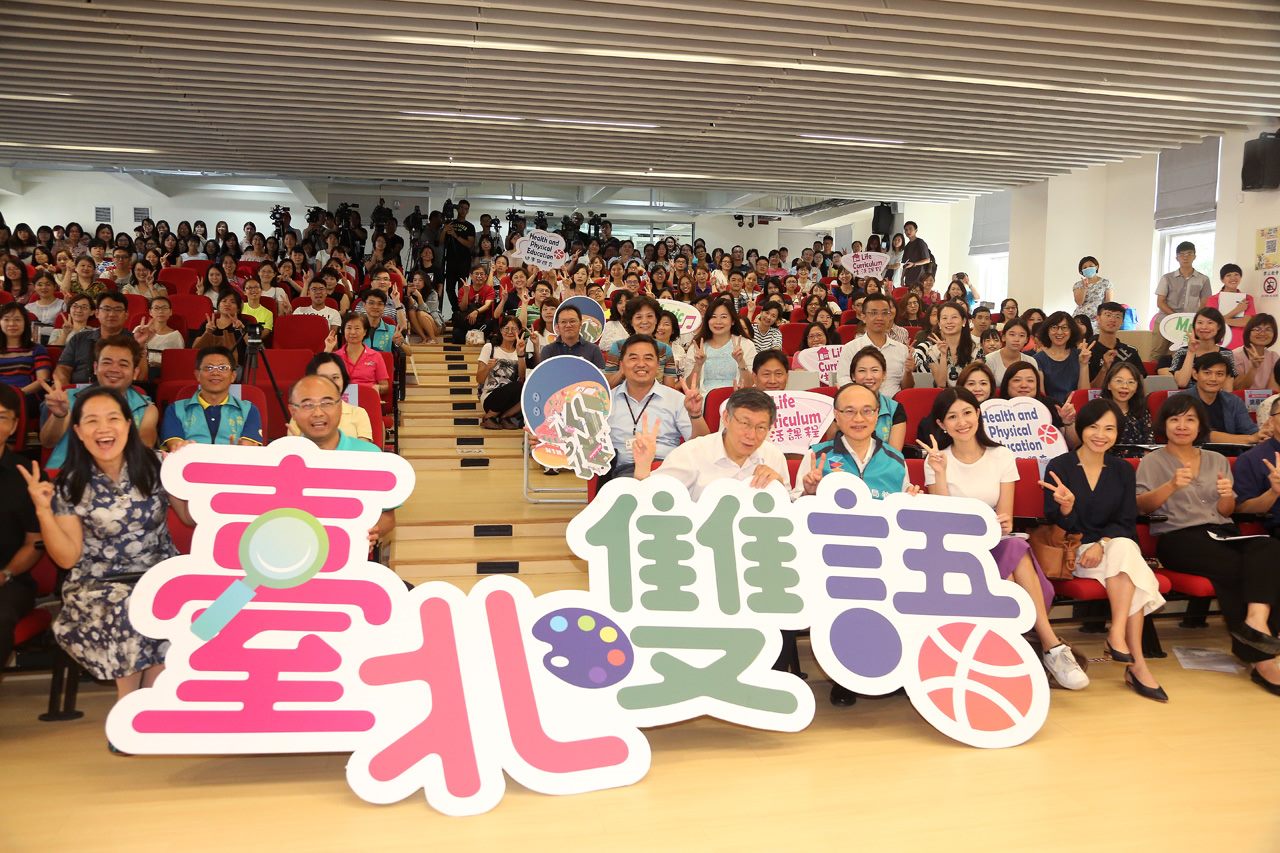CLIL Curricula Presentation: Mayor Stresses Importance of Bilingual Education
 Mayor Ko Wen-je traveled to Tanmei Elementary School to attend the Taipei City Bilingual Experimental Course - Content and Language Integrated Learning (CLIL) Curricula Presentation.
Mayor Ko Wen-je traveled to Tanmei Elementary School to attend the Taipei City Bilingual Experimental Course - Content and Language Integrated Learning (CLIL) Curricula Presentation.
He suggested that the opportunity for Taipei City to promote bilingual education arose in 2016 when he visited Singapore. During his meeting with the Minister for Education and the cabinet, he asked them how Singapore became a bilingual country; hence the Minister for Education gave him a copy of the Biography of Lee Kuan Yew. One of the key infrastructures of Singapore in its quest to become an international metropolis is bilingual education, which took 28 years to come into fruition. Consequently, when Mayor Ko returned to Taiwan he immediately requested the Department of Education (DOE) assemble a team to visit Singapore. He has also invited consultants from Singapore to come to Taipei.
After a year of preparation, Wenchang Elementary School and Dong-xin Elementary School were chosen as bilingual schools in September 2017. A questionnaire survey conducted after a semester revealed that the parents and students were extremely satisfied with the program, and the teachers have shown tremendous support as well.
According to Mayor Ko, the number of bilingual schools has increased from 2 in 2017 to 6 in 2018, and 13 in 2019; the figure is expected to hit 24 next year. During the implementation process, a review meeting is held every 6 months, and he has discovered an interesting phenomenon where parents in Taipei City are more passionate about English than the students, with over 90% of them supporting the promotion of bilingual education.
The mayor mentioned that the 2 bottlenecks that were encountered while promoting bilingual education include teachers and teaching materials. The criterion for a bilingual curriculum requires that at least 1/3 of the courses be taught in English. In light of this, a bilingual education promotion office was established, and he has demanded the DOE stipulate relevant policies for bilingual education over the next few years as it is a long-term endeavor. It took Singapore 28 years to realize bilingual education; therefore it will certainly require more than 28 years to popularize bilingual education from Taipei City to the entire country, since Taiwan is at least 4 times larger than Singapore in terms of territory and population.
Ko commented that he studied textbook English in school rather than scenario-based English; therefore he found that going through English medicine-related books was a lot quicker than the Chinese version. During the bilingual teaching material development process, he does not only want the students to read and write English, but also to speak and comprehend the language verbally. If Taipei is to become an international city, English should become an everyday spoken language.
Mayor Ko realized that people who are unable to speak English abroad are at a disadvantage; therefore it is imperative to let our children learn English in order to maintain the international competitiveness of our future generation. Although he graduated from National Taiwan University College of Medicine, he is unable to speak fluent English at international occasions, which suggests that the educational approach of the past was inadequate.
He reiterated that bilingual education, smart education and the infrastructure of smart education must be established by the DOE over the next year or two. As the forerunner of education in Taiwan, Taipei City’s bilingual teaching materials will be provided to other municipalities absolutely free of charge along with technologies including Taipei CooC-Cloud, unmanned stores, and campus management. It is hoped that the modernization of education will provide disadvantaged people with an opportunity to shape their future.

![Taiwan.gov.tw [ open a new window]](/images/egov.png)
